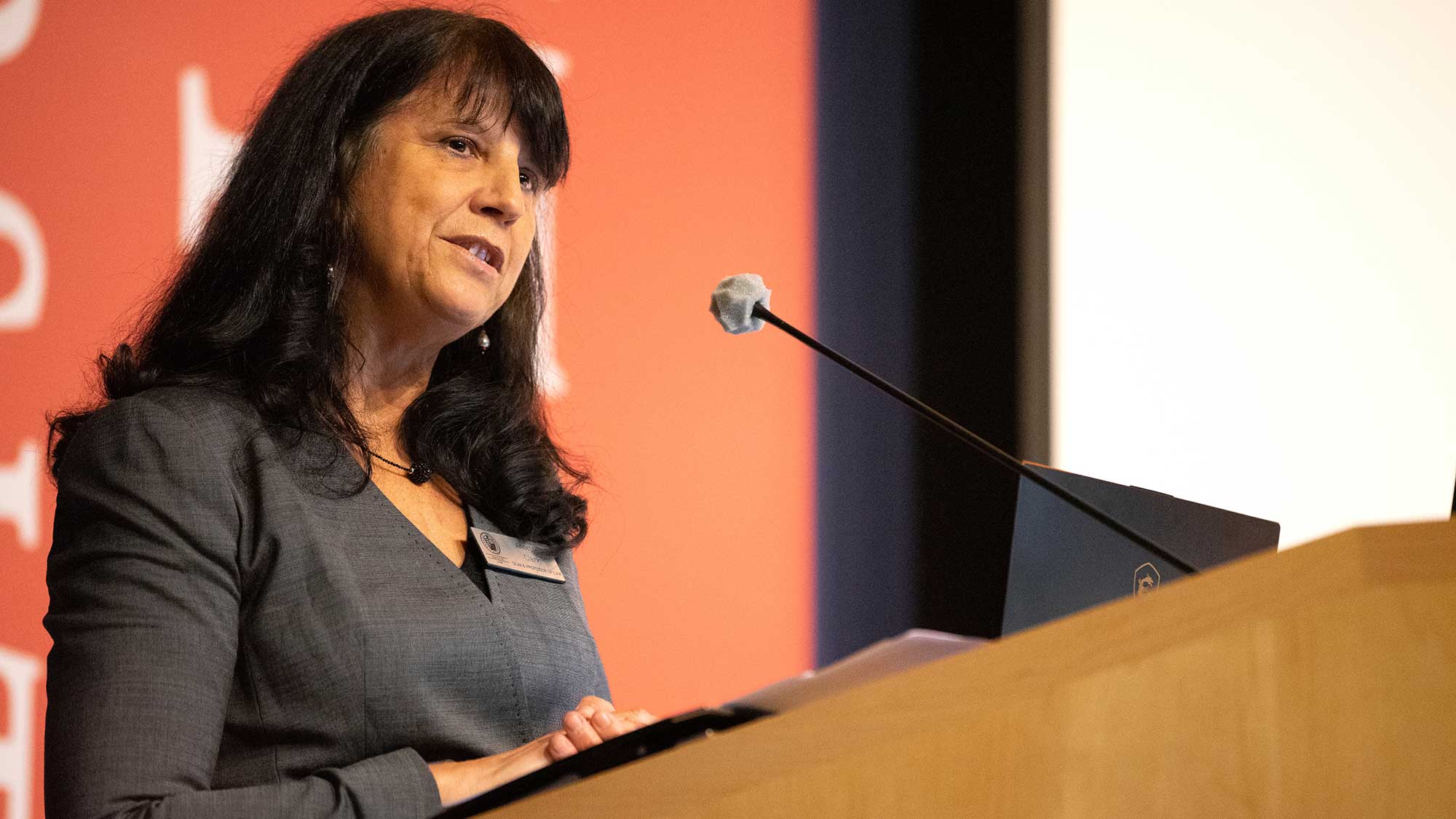Dean Annette Clark JD '89 welcomed new students at 1L Orientation this week with a reminder about the potential and privilege that comes with a legal education.
"We are society's problem solvers, and our power is in our words," she said. "I encourage you to devote yourselves to mastery of the language of law, and then choose your words carefully and with sensitivity to the power you will wield as lawyers."
She quoted the late author Toni Morrison's 1993 Nobel Prize acceptance speech as a way to underscore the enduring impact of the written and spoken word, which are lawyers' primary tools of their trade: "We die. That may be the meaning of life. But we do language. That may be the measure of our lives."
Seattle University School of Law's newest students arrive with a wide array of life experiences before law school. They've worked as journalists, teachers, artists, activists, and game developers. The 2019 cohort of first-year students includes former college athletes and a certified yoga instructor.
Most of the new students — 67 percent — are from Washington state. The rest are from outside Washington, including three international students. In total, 24 U.S. states and four countries are represented.
The incoming class is 40 percent people of color, 5 percent veterans, 17 percent LGBTQ, and 61 percent women.
The average age is 27. The students attended 101 colleges and universities for their undergraduate educations, including Amherst College, Brigham Young University, Duke University, Vassar College, Whitman College, and University of California at Los Angeles.
This year, the law school also registered a substantial increase — more than double — in the number of students participating in the "3 + 3" program with the Albers School of Business. The program allows high-performing business students to enter the law school after three years of undergraduate study, earning a bachelor's and a JD in six years.
Each year, incoming students read a common text and discuss its relevance to the legal profession during orientation. This year's book, "Automating Inequality" by Virginia Eubanks, examines the injustice that results when algorithms attempt to simplify complicated decisions.
Dr. Jonathan Kanter, director of the Center for the Science of Social Connection at the University of Washington, led an afternoon session on the science of racial microaggressions. Thursday's sessions include presentations on implicit bias, professionalism, and student services, as well as a welcome from the King County Bar Association and Washington Supreme Court Justice Mary Yu.

